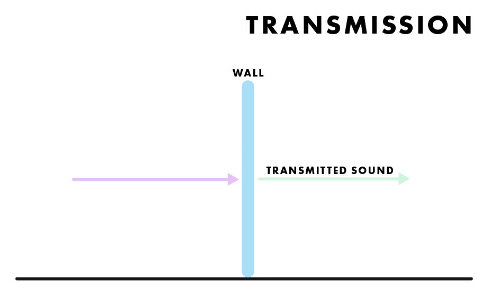Class 7 Exam > Class 7 Notes > Year 7 Physics (Cambridge) > How sound travels
How sound travels | Year 7 Physics (Cambridge) - Class 7 PDF Download
| Table of contents |

|
| Introduction to Sound |

|
| Transmission of Sound Waves |

|
| Factors Affecting Sound |

|
| Propagation Through Different Media |

|
Introduction to Sound
- Sound is produced when an object vibrates, sending waves of energy or vibrations.
- These vibrations travel through a medium in a wave pattern, known as sound waves.
- When sound waves reach our ears, we perceive them as sound.
Transmission of Sound Waves
- Vibration and Air Particles:
- When an object vibrates, it creates sound waves.
- These waves cause nearby air particles to vibrate in a chain reaction.
- The vibrations travel from particle to particle until they reach our ears.
- Mechanism of Hearing:
- Sound waves reach the eardrum, causing it to vibrate.
- Vibrations are transmitted through the middle ear to the inner ear (cochlea).
- In the cochlea, thousands of tiny hair cells convert vibrations into electrical signals.
- Perception of Sound:
- Electrical signals are sent to the brain via the hearing nerve.
- The brain interprets these signals, allowing us to recognize and understand sounds.

Factors Affecting Sound
- Amplitude and Loudness:
- Amplitude refers to the size of vibrations.
- Stronger vibrations (larger amplitude) produce louder sounds.
- Weaker vibrations (smaller amplitude) produce quieter sounds.
- Distance and Intensity:
- Sound intensity decreases with distance from the source.
- The further away from the source, the quieter the sound becomes.
Question for How sound travelsTry yourself: Which factor determines the loudness of a sound?View Solution
Propagation Through Different Media
Sound in Different States of Matter:
- Sound can travel through solids, liquids, and gases.
- It requires particles to transmit vibrations.
- In a vacuum (absence of particles), sound cannot propagate.
Conclusion
- Understanding how sound travels helps explain how we hear and perceive sound in our environment.
- Learning about sound waves and their properties enhances our knowledge of the physical world around us.
The document How sound travels | Year 7 Physics (Cambridge) - Class 7 is a part of the Class 7 Course Year 7 Physics (Cambridge).
All you need of Class 7 at this link: Class 7
|
14 videos|31 docs|9 tests
|
FAQs on How sound travels - Year 7 Physics (Cambridge) - Class 7
| 1. How do sound waves travel through different mediums? |  |
Ans. Sound waves travel through different mediums by causing particles in the medium to vibrate back and forth in the same direction that the sound wave is moving. This vibration creates a series of compressions and rarefactions which propagate the sound wave through the medium.
| 2. What factors affect the speed of sound propagation? |  |
Ans. The speed of sound propagation is affected by factors such as the temperature, density, and elasticity of the medium through which the sound is traveling. In general, sound travels faster in denser and more elastic mediums, and at higher temperatures.
| 3. How does the distance from the sound source affect sound propagation? |  |
Ans. The distance from the sound source affects sound propagation by causing the sound wave to gradually lose energy as it travels further away. This results in a decrease in the intensity of the sound, making it quieter the farther you are from the source.
| 4. Can sound waves travel through a vacuum? |  |
Ans. No, sound waves cannot travel through a vacuum because they require a medium (such as air, water, or solids) to propagate. In the absence of a medium, there are no particles for the sound waves to interact with and therefore, they cannot travel.
| 5. How does the frequency of a sound wave affect its propagation? |  |
Ans. The frequency of a sound wave affects its propagation by determining the pitch of the sound. Higher frequency sound waves have a higher pitch and tend to be more directional, while lower frequency sound waves have a lower pitch and can travel further and penetrate obstacles better.
Related Searches















